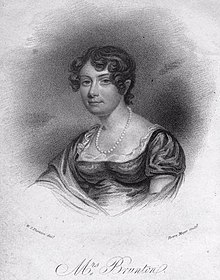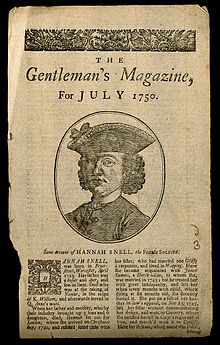If any of my fellow storytellers deal with writer’s block from time to time, here’s some fun help. Fun help? That’s right. See you in the playground.

Photo by Marion Michele on Unsplash

Photo by Sneha Chekuri on Unsplash


If any of my fellow storytellers deal with writer’s block from time to time, here’s some fun help. Fun help? That’s right. See you in the playground.

Photo by Marion Michele on Unsplash

Photo by Sneha Chekuri on Unsplash
Ever wondered what the difference is between having read Jane Austen and being a full-on Janeite? Or where you are in the Jane Austen fan continuum? You might find your answer in this fun conversation. It’s all part of Austen in August, and if you’ve missed any of it; don’t worry, you can catch up at The Book Rat and join the party. There are lots of posts and still some giveaways going on.
Want to hear more about what Jane Austen fans have to say about their obsession with their favorite author? Check out our own signs of addiction, see what other readers have said about theirs, and you can even contribute your own!
[reprinted here with the kind permission of The Jane Austen Centre, celebrating Bath’s most famous resident and reporting the latest Austen-related news. ]
I am looking over Self Control again, & my opinion is confirmed of its’ being an excellently-meant, elegantly-written Work, without anything of Nature or Probability in it. I declare I do not know whether Laura’s passage down the American River, is not the most natural, possible, every-day thing she ever does.
 in fact, it seems to have become the accepted critical opinion, so much so that Brunton tends to be accused of faults she did not even have. Before I read Self-Control (1811) and Discipline(1814), I therefore assumed the novels were over-the-top in a wildly sentimental, Gothic fashion. (Several academic texts and reference works I’ve since looked at operate under the same illusion, which is making me wonder whether most academics actually read the books they write about.) I really should have paid more attention to the titles – whoever would give a sentimental potboiler such a forbidding title as Self-Control? (more…)
in fact, it seems to have become the accepted critical opinion, so much so that Brunton tends to be accused of faults she did not even have. Before I read Self-Control (1811) and Discipline(1814), I therefore assumed the novels were over-the-top in a wildly sentimental, Gothic fashion. (Several academic texts and reference works I’ve since looked at operate under the same illusion, which is making me wonder whether most academics actually read the books they write about.) I really should have paid more attention to the titles – whoever would give a sentimental potboiler such a forbidding title as Self-Control? (more…)
Hardly. And yet, the self-congratulating and clueless titular heroine of Jane Austen’s Emma rises above being the character that Austen thought that no one but herself would like. In the course of the story, Emma has a series of aha! moments about herself. More important, she acts on that self-awareness.
via GIPHYAlicia Silverstone in Clueless, a brilliant adaptation of Emma.
Once she tears down that wall of delusion and replaces it with wisdom, the heroine-in-training develops more self-awareness, more self-empowerment, and more capability to create happiness than she ever had before. That is what Emma does. For that is what Austen superpowers are all about. (more…)
[by Laura Boyle and reprinted here with the kind permission of The Jane Austen Centre, celebrating Bath’s most famous resident and reporting the latest Austen-related news. ]

Lizzy Bennet may be the one with all the flash and sparkle, but one should never underestimate one of Austen’s more reserved heroines, Anne Elliot of Persuasion.

Ciaran Hinds as Captain Wentworth and Amanda Root as Anne Elliot in “Persuasion,” directed by Roger Michell
At first glance, Anne may not seem to fit the typical ideal of a cape-wearing, save-the-day superhero, but let’s take a closer look at Miss Anne:
Who had the presence of mind that no one else had when Louisa Musgrove fell from the Cobb at Lyme?
That’s right; Anne Elliot did. Everyone else was wailing and flailing while she was the voice of calm and reason in the midst of the emergency. She was the one who gave Captain Wentworth calm and rational directions as to how to help Louisa. (more…)
I could write a book on all the uses I have for essential oils, and writing is a big one. Productivity, creativity, flow, and focus are just a few of the things I need in my writing life, and I have essential oil blends to help me with all of them.

by Startup Stock Photos
Have you ever tried to write a scene or a post or a proposal and can’t figure which angle to approach it from, or you can’t find the right words or the right tone?
Have you ever wanted to email or text or talk about something—especially if it’s a difficult subject—and you can’t seem to get it out? Or you’re afraid you’ve said too much?
Have you ever felt that way in a social situation—worried that you don’t know how to make small talk or you’re coming off too reserved or you’ve revealed more to a total stranger than you should have done?
My answer would be yes, yes, and yes. (more…)
Are you a writer, too? If so, you may find my posts on the writing life helpful.
Have you ever thought about finding an editor to help you through the process? I can relate. I wouldn’t be where I am without the guidance and encouragement of my own editor/writing coach.
(more…)
[by Laura Boyle and reprinted here with the kind permission of The Jane Austen Centre, celebrating Bath’s most famous resident and reporting the latest Austen-related news. ]
In his diary entry of May 21, 1778, Parson Woodforde (Diary of a Country Parson) notes a trip that he took to Weston in order to see a “Famous Woman in Men’s Cloaths”:

 This curiousity was none other than Hannah Snell, subject of The Female Soldier; or The Surprising Life and Adventures of Hannah Snell, 1750.
This curiousity was none other than Hannah Snell, subject of The Female Soldier; or The Surprising Life and Adventures of Hannah Snell, 1750.
Born in Worcester, England on 23 April 1723, locals claim that she played a soldier even as a child. In 1740, Hannah moved to London and married James Summs on 6 January 1744.
In 1746, she gave birth to a daughter, Susannah, who died a year later. When her husband deserted her, she borrowed a male suit from her brother-in-law James Gray, assumed his name, and began to search for Summs. She later learned that her husband had been executed for murder. According to her account, she joined John Guise’s regiment, the 6th Regiment of Foot, in the army of the Duke of Cumberland against Bonnie Prince Charlie, and deserted when her sergeant gave her 500 lashes. However, the chronology of her life makes it very unlikely that she ever served in Guise’s regiment and this part of the story is likely to have been a fabrication. (more…)
We dream of them. We want to be them. We wish they were our best friend. Or our partner. And sometimes, we wish we could shake some sense into them.
They are Jane Austen’s heroines and heroes. Each of them has a flawed humanity, but each also has a unique and special quality—an Austen superpower, if you will.
Which is why they are so eminently relatable. Like them, we too are flawed. And like them, we have those same superpowers. They may be hidden away where we cannot see them, but they are there neverthless. All we have to do is believe.
How do we do that? By following the lead of Austen’s leading ladies and men, who dig down deep within themselves to access their own superpowers.
In this first of a series of posts, we turn to the heroine who is perhaps the most beloved of all: Elizabeth aka Lizzy Bennet of Pride and Prejudice.